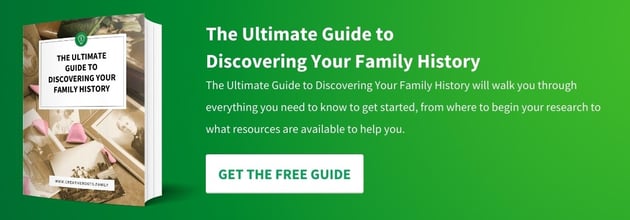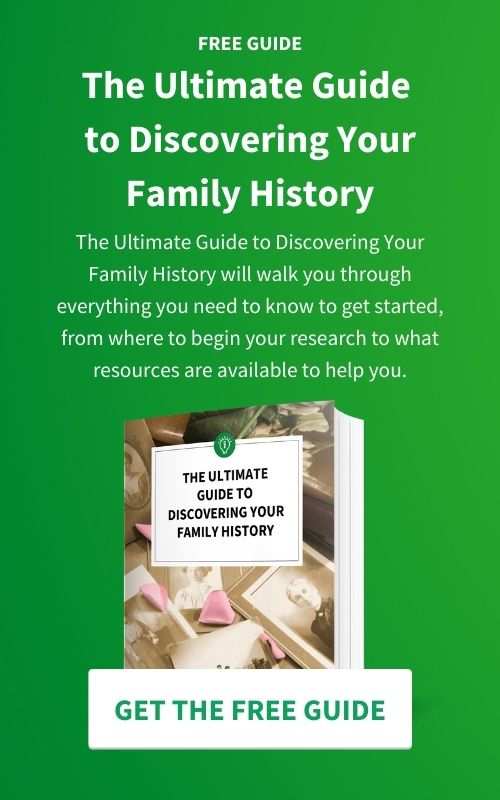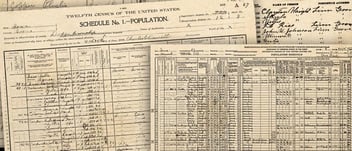Tips for an Effective Onsite Research Experience
Are you interested in researching your family tree but don't know where to start? Have you hit a brick wall in your online research and are now looking to delve deeper into your ancestry? If so, onsite genealogical research may be the answer for you. Onsite visits can be overwhelming for some, this article should help you gain an effective onsite research experience.
Onsite genealogical research is the process of researching your ancestors using primary source documents. This can be done by visiting courthouses, libraries, cemeteries, and other places where records are kept.
While online research is a great way to get started, it can only take you so far. Sometimes you need to go to the source to find the information you are looking for. Onsite research can be time-consuming and daunting, but it is often worth the effort.
In this article, we will be discussing tips for effective onsite genealogical research. We will cover topics such as knowing what records are available, planning your research trip, and making the most of your time at the archives.
Do your homework before you go
When embarking on any research project, it is always best to do your homework before you go. This is especially true when doing genealogical research. There are many resources available online and in libraries that can help you prepare for your trip.
Some things to consider researching before you go include the history of the area where your ancestors lived, what records are available from that time period, and which archives or libraries hold those records. You should also try to find out as much as possible about your specific ancestor so that you will know what type of information you should be looking for during your trip. Most record types have finding-aids available for your review prior to visiting the library or archives.
By taking some time to prepare ahead of time, you can make the most of your onsite genealogical research and have a more productive and successful trip overall!
Make a plan and stick to it
When it comes to onsite genealogical research it is so easy to become overwhelmed and have your research time go sideways. Making a plan and sticking to is key. This means having a specific goal in mind for what you want to learn or find out and then creating a strategy for how you're going to go about doing that.
Part of this also includes being prepared with all the necessary tools and resources ahead of time. Doing your homework before heading into the archives will save you valuable time (and likely frustration) later on.
Last but not least, don't forget to take breaks! Trying to cram too much research into one day can be overwhelming and counterproductive. If you give yourself some time away from the books every now and again, you'll come back refreshed and ready to tackle whatever obstacles stand in your way.
Be respectful and take your time
When conducting genealogical research, it is important to be respectful of the people and property you are interacting with. This includes being patient and taking your time in order to avoid damaging or disturbing any materials. It is also important to be aware of local customs and etiquette in order to show respect for those who may be assisting you with your research. Following these simple guidelines will help ensure that your research experience is positive for both you and the people you interact with.
Be flexible and be prepared to change your plans
We all know that feeling of finally finding the perfect research plan, complete with a customized list of resources and a detailed schedule to follow. But what happens when you get on-site and find that the records you need aren't available or are completely different than what you expected? Being flexible and prepared to change your plans is an important part of effective genealogical research.
Here are some tips for how to handle changes while still making progress on your family history:
- Have alternate record sources in mind before you even start researching. This way, if something isn't available, you have other options to turn to.
- Flexibility also applies to your timeline; be willing to adjust as needed based on what information is actually available. -If possible, talk to staff at the archives or library ahead of time so they can give you more specific advice about their holdings.
- Finally, remember that not everything will go according to plan but don't despair! With a little flexibility, you'll be able to make progress in spite of any setbacks.
Don't forget to enjoy yourself
Don't forget to enjoy yourself! This may seem like an obvious piece of advice, but it's one that is often overlooked. When you're caught up in the research process, it's easy to forget why you're doing all this work in the first place. Remembering to have fun will help keep you motivated and excited about your project.
There are a few ways to make sure you stay focused on enjoying yourself while researching in general:
- First, set realistic goals for what you hope to accomplish each day or week. If you only allow yourself a limited amount of time for research, then it won't feel like such a chore.
- Secondly, take breaks when needed and don't be afraid to walk away from your project if things start feeling too overwhelming. It's important to maintain perspective and not put too much pressure on yourself.
- Lastly, share your findings with others! Excavating family history can be lonely work at times, so reach out to friends and relatives who might be interested in hearing what you've discovered.
Conclusion
When it comes to onsite genealogical research, there are a few things you can do to make sure you make the most of your time. First, it's important to have a plan. Know what records you need and where to find them. Second, be prepared to spend some time digging. Be patient and methodical in your search, and you're sure to find what you're looking for. Finally, take advantage of technology. Use online resources to supplement your onsite research and make the most of your time.
Enhance your research skills by exploring these related blogs and by following these tips, you can be sure to get the most out of your onsite genealogical research. So what are you waiting for? Get out there and start digging!
If you are interested in getting started on preserving your own family's history, we've got a great free template to help get you organized. Click the Get the Free Guide button below to download your copy.


Article by Carol Walsh
Carol Walsh is the CEO of Creative Roots, a professional genealogy company. She has a passion for preserving family history and storytelling. Carol's research methodology centers around fact-finding and publishing in a format that readers can use to preserve the stories. Her ultimate goal is to help families connect with their past and each other.





